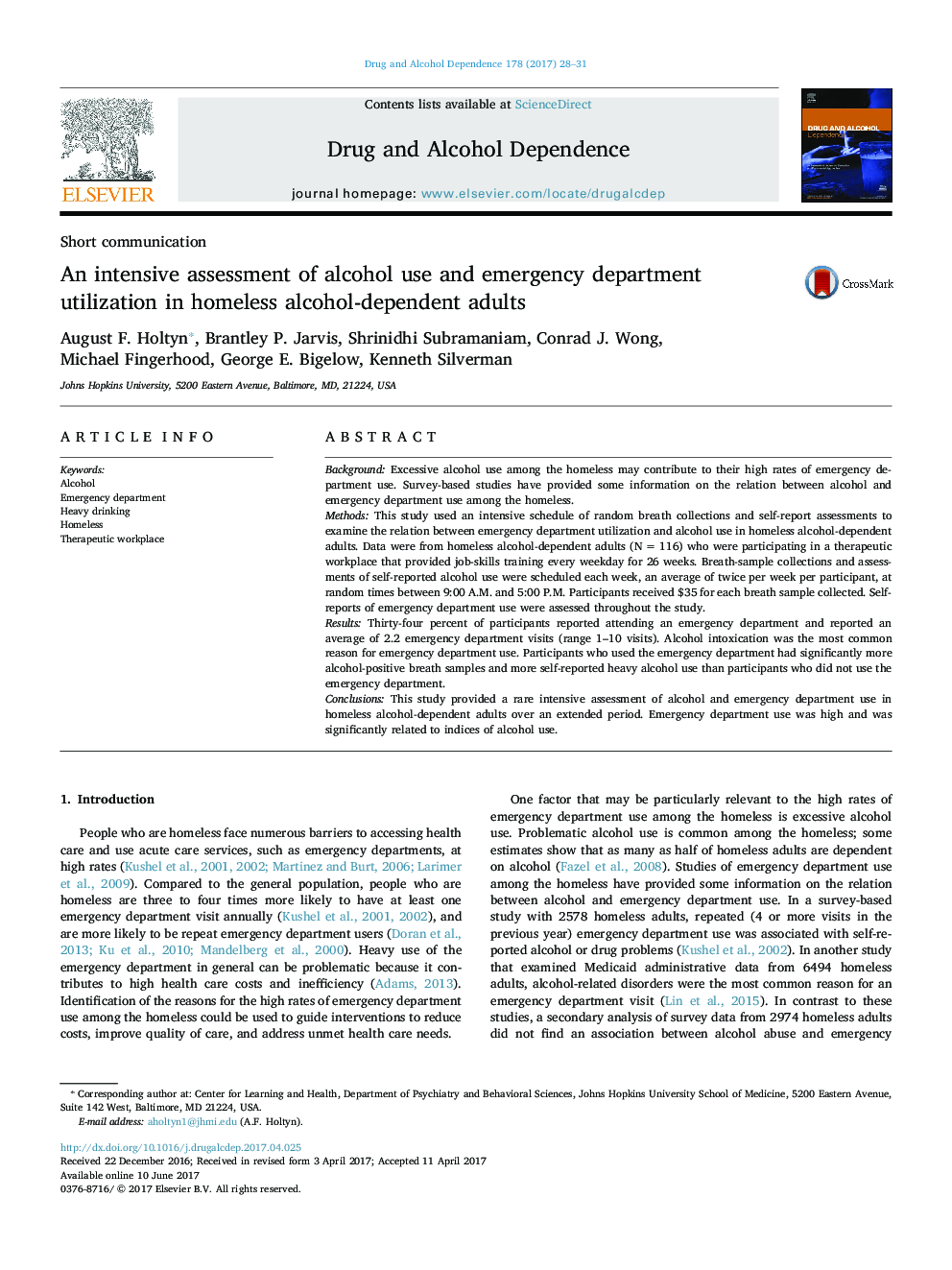| Article ID | Journal | Published Year | Pages | File Type |
|---|---|---|---|---|
| 5120391 | Drug and Alcohol Dependence | 2017 | 4 Pages |
â¢Alcohol intoxication was the most common reason for emergency department use.â¢Homeless adults with emergency department use had more alcohol-positive breath samples.â¢Homeless adults with emergency department use had higher rates of heavy alcohol use.
BackgroundExcessive alcohol use among the homeless may contribute to their high rates of emergency department use. Survey-based studies have provided some information on the relation between alcohol and emergency department use among the homeless.MethodsThis study used an intensive schedule of random breath collections and self-report assessments to examine the relation between emergency department utilization and alcohol use in homeless alcohol-dependent adults. Data were from homeless alcohol-dependent adults (NÂ =Â 116) who were participating in a therapeutic workplace that provided job-skills training every weekday for 26 weeks. Breath-sample collections and assessments of self-reported alcohol use were scheduled each week, an average of twice per week per participant, at random times between 9:00 A.M. and 5:00 P.M. Participants received $35 for each breath sample collected. Self-reports of emergency department use were assessed throughout the study.ResultsThirty-four percent of participants reported attending an emergency department and reported an average of 2.2 emergency department visits (range 1-10 visits). Alcohol intoxication was the most common reason for emergency department use. Participants who used the emergency department had significantly more alcohol-positive breath samples and more self-reported heavy alcohol use than participants who did not use the emergency department.ConclusionsThis study provided a rare intensive assessment of alcohol and emergency department use in homeless alcohol-dependent adults over an extended period. Emergency department use was high and was significantly related to indices of alcohol use.
